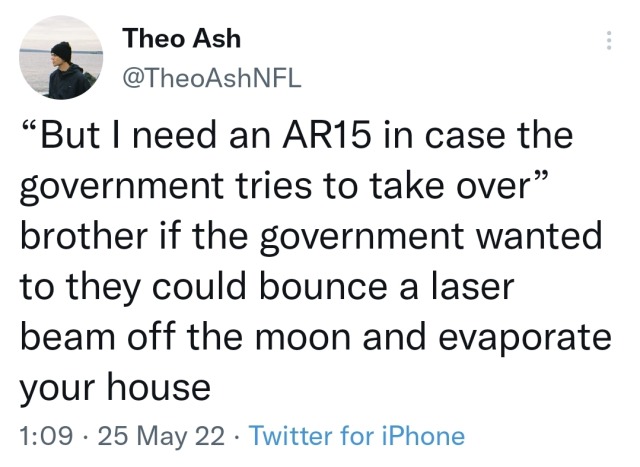#gunsafetynow
I’ve noticed over the years that when a white person kills a lot of people with the aid of guns, we are told that guns don’t kill people, people kill people. Usually, the conversation then pivots away from guns to the epidemic of mental health issues in America. In these situations, the gun rights advocates’ response to gun violence often is not punitive, but rather positively identifying a public health issue that contributes to the violence. This demonstrates that gun rights advocates are capable of identifying a societal problem that contributes to mass violence and proposing a solution which neither criminalizes nor punishes communities for gun violence.
Relatedly–because these conversations sometimes shift to so-called “black-on-black” crime and gun violence–we see a very different reaction when black people commit gun violence in segregated cities. Instead of identifying the deeper societal wounds (centuries-long intergenerational trauma, systemic racism, poverty, lack of services and opportunity, poor wages, etc.) and offering effective sympathetic solutions (investing in communities, providing more services, regionalizing taxation, dare I say reparations) as we have established they can, many of those same gun rights advocates offer different, punitive solutions: namely more police, more surveillance, and more jails.
In the former scenario, guns aren’t the issue, communities aren’t the issue, gun culture isn’t the issue, but–with sympathy and thoughts and prayers–mental health is the issue we should focus on. As a society, it is our problem to solve, even if it never gets solved. In the latter case, guns are an issue, minority communities and “black culture” are issues, and lacking sympathy, “cracking down” on violence is the issue we should focus on. As a society, it is not our problem; it is “their” problem to solve in the city, and if anyone tries to take funds away from police, we will work hard to get the police their funding back, or get them even more. In other words, action actually gets taken in the second scenario.
Why did I want to share this perspective? Especially for our fellow Americans who struggle to acknowledge the reality of systemic racism, I hope that these two scenarios shed light on its existence and function: how it can permeate conversations and mindsets, political talking points, how we see fellow Americans, what policy solutions are proposed in different situations, who is seen as sympathetic, who is responsible for resolving societal problems, and who is most likely to feel the force of state violence and who gets exceptions made for them. You, kind reader, may not be a racist, and all gun rights activists may not be racists, but it is important to acknowledge that racists and systemic racism play very real and very detrimental roles in our politics, policy, and discourse. And it never hurts to use our privilege to point it out. Short of doing nothing, it’s literally the least we can do.
Thank you for attending my three minute TED Talk!
Peace, love, and solidarity,
Tom

